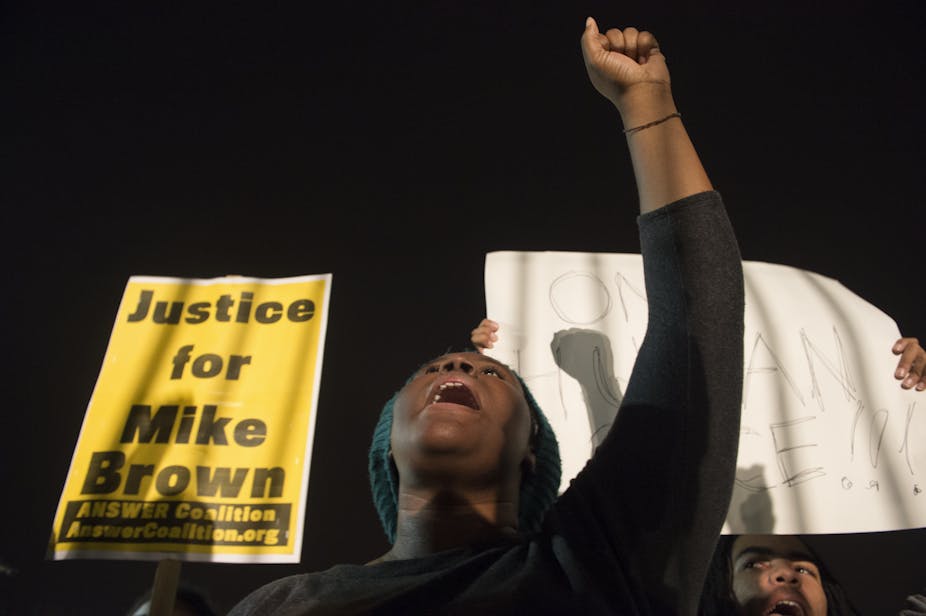Following the decision by a grand jury not to indict St Louis police officer Darren Wilson for fatally shooting teenager Michael Brown, it has been suggested that the incident is far from a special case. I agree entirely. Ferguson is completely consistent with longer term trends in data about crime and the criminal justice system in the United States.
A variety of studies show that there continues to be disproportionate maltreatment of African Americans at different points within the criminal justice system, including stop and search, arrest, conviction, sentencing, and killing.
This disproportionality occurs over and above the long-term trends in black crime rates. Arrest rates are higher, conviction rates are higher, custodial sentences are made more often and for longer durations, and confrontation with the police results in a higher rate of killing.
Arguments that African Americans commit more crimes miss the point. Even when they do commit more crimes, their treatment by the justice system is markedly worse than for other groups in society who also commit crimes.
A recent study from The Sentencing Project provides a number of disturbing findings that support this view.
The study showed that white Americans have a much stronger “punitive mindset” and are more likely to favour the death penalty. On top of that, they overestimate the amount of crime that is actually committed by non-whites. The study also shows clear evidence of the unequal enforcement of laws and a media bias that leads to greater coverage of crimes against white victims.
Behind the numbers
This tells a story of systemic problems in American society and the criminal justice system. These problems serve as inconvenient truths in a country founded on principles of equality, the protection of fundamental rights, and the rule of law.
Those who recognise this statistical portrait of America see within the data a story of endemic racism and discrimination, where the underlying patterns suggest intention to treat black Americans differently than others (the study also shows a similar set of findings for Hispanic Americans).
Data of course cannot show intentionality but the kinds of patterns that are observed could not be produced by mere chance alone. Michael Brown and Darren Wilson were not brought together by random chance which then resulted in a coincidental outcome of Brown’s death. There are systemic and individual factors at play, which make the Brown case much like other cases that produce the kind of data analysed by The Sentencing Project.

Those who do not embrace the data or agree with the statistical portrait of America prefer to blame the victim and focus on the the personal drivers and motivations for criminal behaviour. They then claim the outcome of confrontation with the police is unfortunate but not surprising. On this view, it is Brown who is wrong. It is Brown who was the criminal and it was Brown who should not have not behaved like Hulk Hogan or a demon.
What is to be done?
In the despair over the grand jury decision, protesters have called for a judicial response. It was welcome news then that Attorney General Eric Holder and the President Barack Obama have ordered the Department of Justice to continue to investigate the case. But wider reform is also needed, including education, social welfare, police training and re-balancing of what is perceived as an unjust and unfair system.
I have seen similar patterns of abuse in many countries outside the US, and I have seen attempts at judicial reform to redress the worst forms of abuse.
Brazil, for example, has had notorious problems with police brutality, where patterns of abuse have shown remarkably disproportionate use of force. A new study shows that reforms aimed at increasing levels of career satisfaction, greater diversity within the ranks, and community-based policing have reduced the propensity to use excessive force. Capacity building and training programmes can also have a positive impact.
Such reform efforts are not without their problems, but I do hope that Brown’s death and the movement it has sparked provide a renewed opportunity for the US government to tackle inconvenient truths in a way that paves a better future for all.

